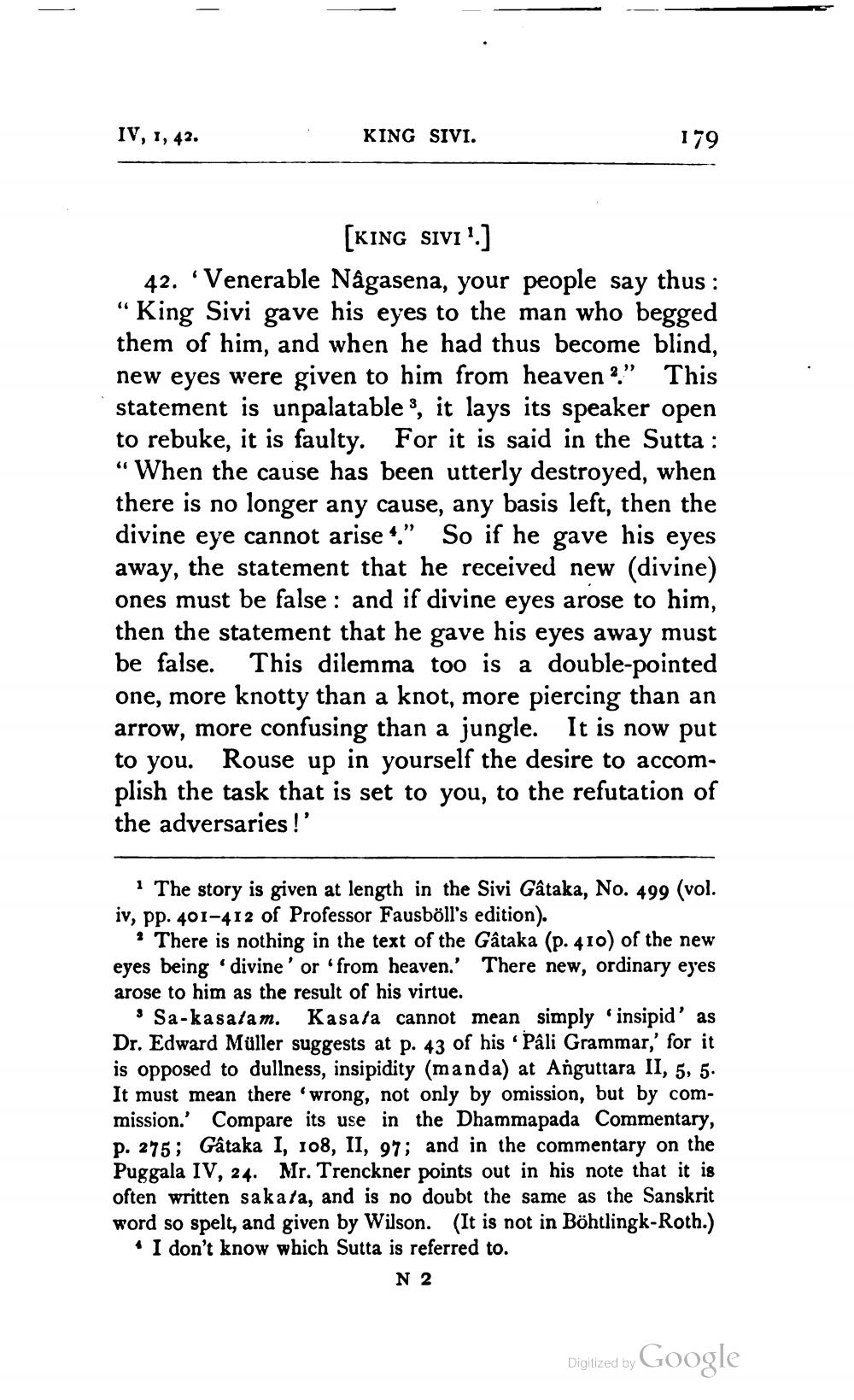________________
Į
|
IV, 1, 42.
KING SIVI.
179
[KING SIVI1.]
66
42. 'Venerable Nâgasena, your people say thus: "King Sivi gave his eyes to the man who begged them of him, and when he had thus become blind, new eyes were given to him from heaven?" This statement is unpalatable, it lays its speaker open to rebuke, it is faulty. For it is said in the Sutta: 'When the cause has been utterly destroyed, when there is no longer any cause, any basis left, then the divine eye cannot arise." So if he gave his eyes away, the statement that he received new (divine) ones must be false: and if divine eyes arose to him, then the statement that he gave his eyes away must be false. This dilemma too is a double-pointed one, more knotty than a knot, more piercing than an arrow, more confusing than a jungle. It is now put to you. Rouse up in yourself the desire to accomplish the task that is set to you, to the refutation of the adversaries!'
1 The story is given at length in the Sivi Gâtaka, No. 499 (vol. iv, pp. 401-412 of Professor Fausböll's edition).
2 There is nothing in the text of the Gâtaka (p. 410) of the new eyes being 'divine' or 'from heaven.' There new, ordinary eyes arose to him as the result of his virtue.
Sa-kasalam. Kasafa cannot mean simply 'insipid' as Dr. Edward Müller suggests at p. 43 of his 'Pâli Grammar,' for it is opposed to dullness, insipidity (manda) at Anguttara II, 5, 5. It must mean there 'wrong, not only by omission, but by commission.' Compare its use in the Dhammapada Commentary, p. 275; Gâtaka I, 108, II, 97; and in the commentary on the Puggala IV, 24. Mr. Trenckner points out in his note that it is often written sakata, and is no doubt the same as the Sanskrit word so spelt, and given by Wilson. (It is not in Böhtlingk-Roth.)
I don't know which Sutta is referred to.
N 2
Digitized by Google




